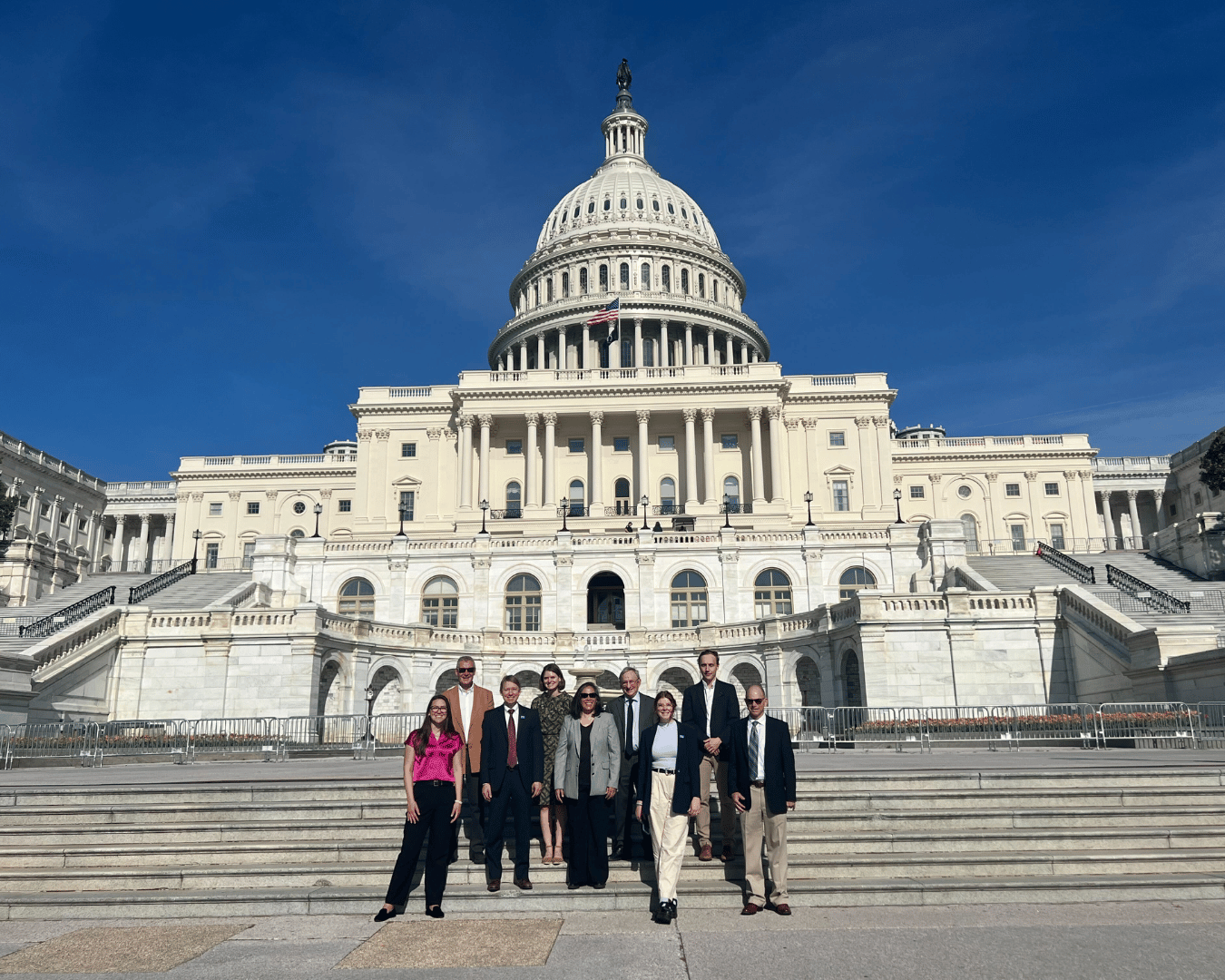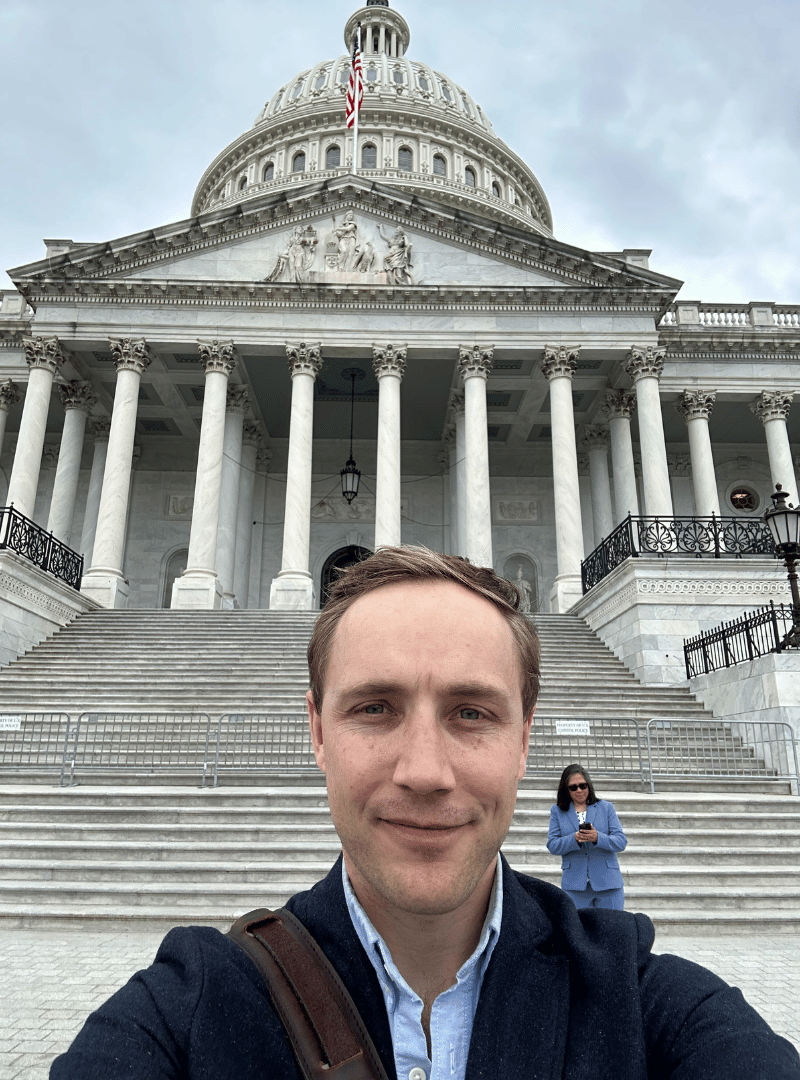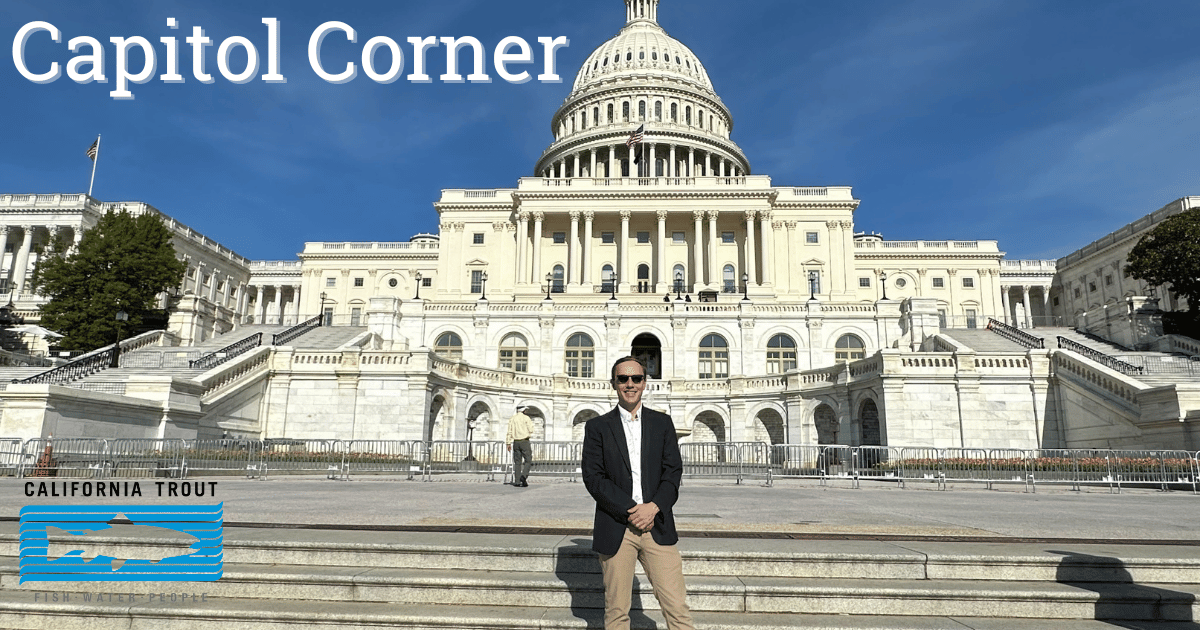Capitol Corner: CalTrout Visits DC and Celebrates Federal Freshwater Funding
CalTrout has long been active in Sacramento, and our history is filled with advocacy victories across the state from State Wild and Scenic River designations to the listing of Southern Steelhead as endangered just a few weeks ago, but did you know that CalTrout also impacts policy in our nation’s capital? Earlier this month, Redgie Collins, CalTrout’s Legal and Policy Director, flew to Washington DC to meet with California representatives to talk about CalTrout’s important restoration work and to encourage legislators to support dam removal and hydropower reform initiatives. His visit directly preceded an exciting announcement by the Biden Administration for major investments in Tribal freshwater projects, dam removal, and fish passage.
CalTrout has grown immensely over the past five years. We’ve opened new offices in Sacramento and Chico, added dozens of new employees throughout the state, and increased the pace, scale, and impact of our restoration work. With that growth comes the need to seek out additional funding sources to match this pace and scale. CalTrout is working with countless federal agencies to implement our work, and to increase our impact we must consider how to remove state AND federal barriers to implementation of large-scale restoration. Pursuing federal funding opportunities and building new relationships legislators in Washington DC gives CalTrout a leg up in protecting and restoring waterways.
Redgie Collins met with a dozen offices in the House and Senate to discuss hydropower reform and to promote CalTrout’s excellent work in congressional districts throughout the state. Collins met with staffers from Assemblymember, and likely future Senator, Adam Schiff to discuss the Southern Steelhead listing under California’s Endangered Species Act; with Senator Padilla and Congressmember Matsui’s staff on aging hydro infrastructure and dam removal; with Congressman LaMalfa’s staff to discuss the bourgeoning Battle Creek Decommissioning Project; and with Congressman Huffman himself on the Potter Valley Project Dam removal efforts.
While legislative champions are essential to our work, Collins also made sure to meet with agency and administration staffers that support CalTrout’s work. Collins presented to the White House Council on Environmental Quality on the importance of tribal engagement on hydropower licensing efforts, on the newest science on greenhouse gas emissions from reservoir operations, and on the need to protect freshwater resources in President Biden’s effort to protect 30 percent of our nations land and water by 2030 (30x30). Collins also spent a day meeting with Federal Energy Regulatory Commission staff and commissioner’s offices to highlight the need to update the Federal Power Act to give Tribal nations the voice they need in hydropower proceedings. Finally, in a meet and great with federal fisheries and water agencies, Collins added some additional context and support for California Natural Resources Agency’s ask for funding for North Coast Salmon Strongholds which supports several CalTrout project priorities.


The White House Water Summit Announces Major Investments for Freshwater
Fresh off Collins’ trip to DC and his meeting with the White House Counsel on Environmental Quality, the Biden Administration announced major investments for Tribal freshwater projects, dam removal, and fish passage at the White House Water Summit. We are thrilled by this news and that California has joined in on the America The Beautiful Freshwater Challenge which sets a bold, new national goal to protect, restore, and reconnect 8 million acres of wetlands and 100,000 miles of our nation’s river and streams. CalTrout has been a strong supporter of the Biden administration’s commitment to 30x30, and we are excited to hear the White House especially emphasize the need to protect freshwater resources. While land and ocean protections are critical, freshwater protections are often forgotten in the accounting and protection process. These lakes, rivers, and streams are harder to quantify when protected, and have gone without meaningful progress here in California.
We are delighted to see the Biden Administration highlight:
- $1 B for Tribal freshwater projects for drinking water and ecosystems
- $70 M for addressing outdated and obsolete dams including removal and fish passage
- We were also thrilled to see the White House highlight the need for additional Outstanding National Water Designations, a tool CalTrout is using on the North Coast for Cedar and Elder creeks.
Thank you to the Biden Administration for these important investments — we’re excited to get to work to get this money on the ground.
CalTrout remains committed to California’s contribution to the 30x30 process and will make sure to continue the momentum in making sure our state’s waterways are preserved and protected. These protections for freshwater are even more important in the face of the climate crisis, and CalTrout is poised for more federal advocacy and funding sources. Trips like this reflect the growth of the organization into the freshwater restoration leader throughout all of California. Stay tuned for more updates about our work in Sacramento, and in our nation’s capital.






